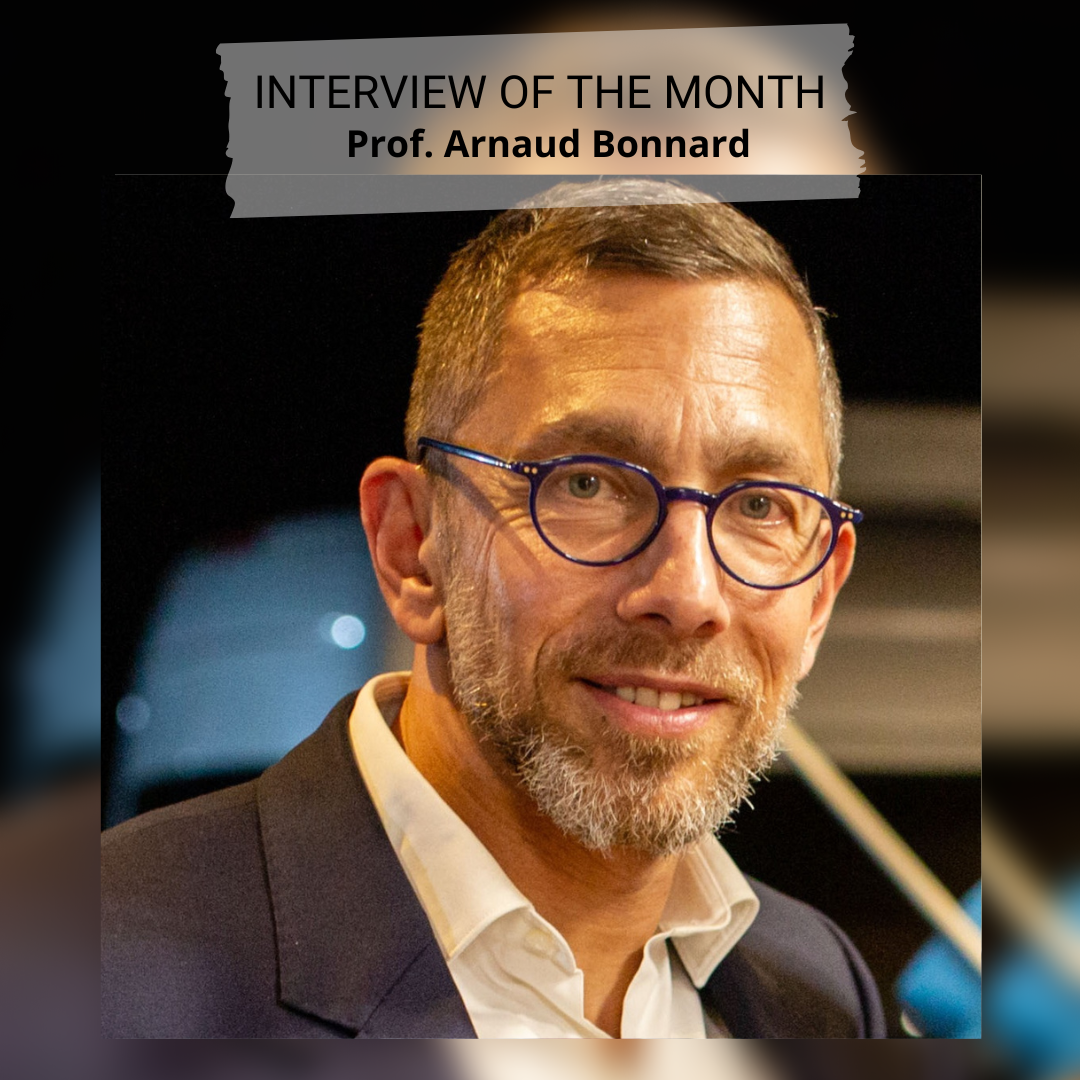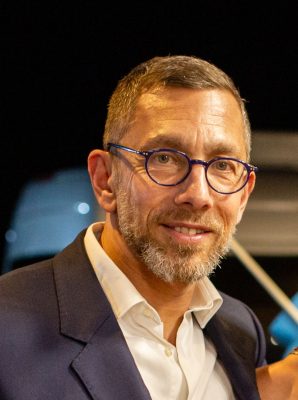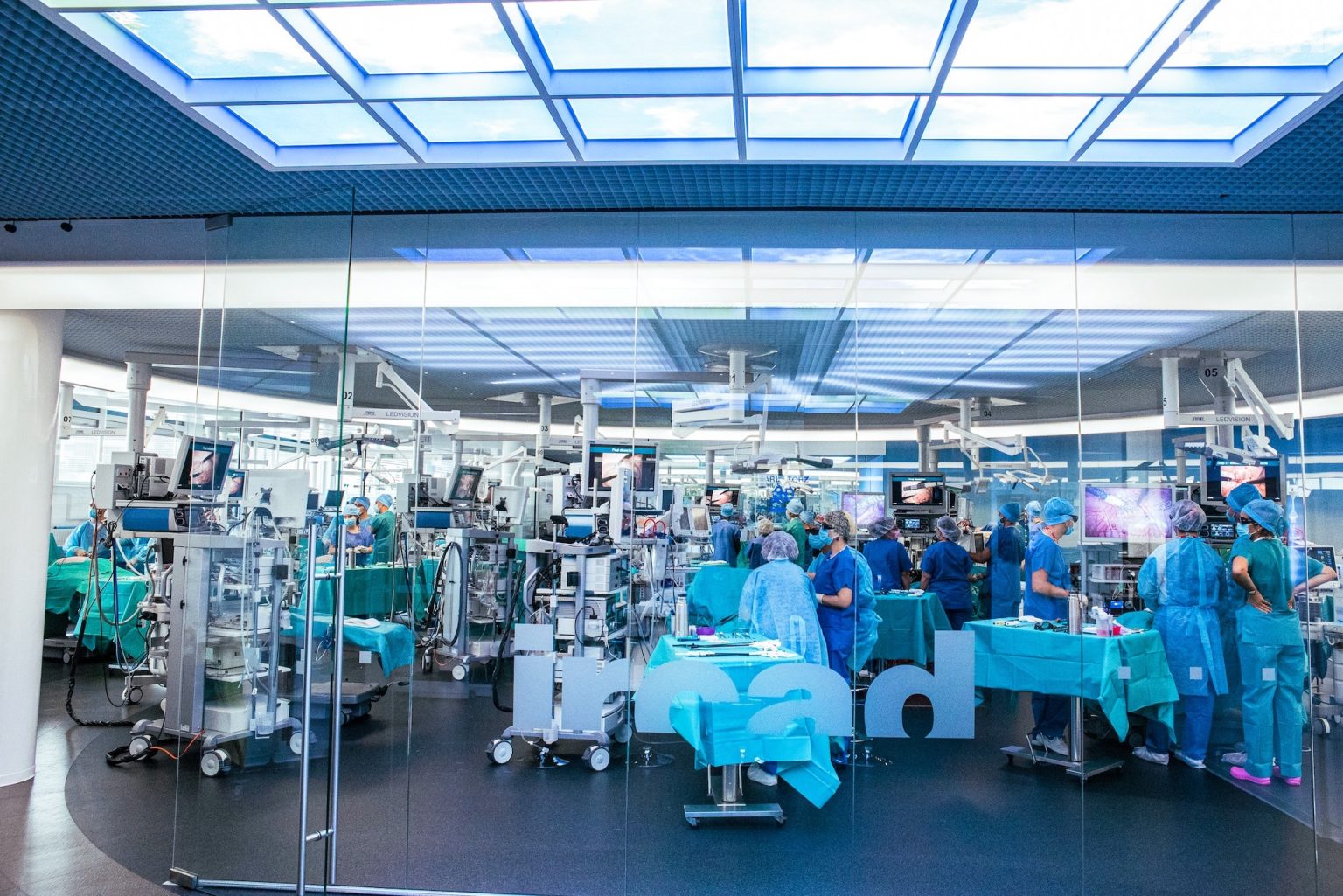
At the commencement of this new year, the IRCAD teams have united to extend their heartfelt wishes for a prosperous 2024 in the video that I am sharing with you. The video reminisces about the Institute’s numerous accomplishments in 2023. As the years progress, our dedication to advancing global healthcare intensifies.
This year holds special significance as we commemorate our 30th anniversary. Since inaugurating its doors in Strasbourg in 1994, IRCAD has expanded its influence globally, establishing mirror institutes in Asia (Taiwan, Lebanon, India, and soon China), South America (two in Brazil), and the United States. IRCAD North America is set to open its doors in Charlotte in 2025. Three decades of worldwide impact and steadfast commitment to advancing surgery through training, research, and innovation.
This expansion is supported by collaborations with industry and professional societies. Among our prominent partners, the European Society for Pediatric Endoscopic Surgery (ESPES), a leading entity in its domain, routinely conducts training courses at IRCAD. ESPES has chosen IRCAD as the venue for its annual congress, scheduled from September 18 to 20, 2024.
Professor Arnaud Bonnard, one of the directors of our pediatric laparoscopic and robotic surgery courses, will serve as a co-chair for the congress. As a pediatric surgeon at Robert Debré Hospital in Paris and the coordinator of pediatric surgery at AP-HP (Assistance Publique Hôpitaux de Paris), Professor Bonnard shares insights into current and anticipated advances in this month’s interview. Additionally, he discusses IRCAD’s strategic directions aimed at fostering the progression of pediatric minimally invasive surgery.

Professor Jacques Marescaux
President and Founder of IRCAD
Currently, in specialized centers, 60 to 80% of pediatric surgical procedures are conducted using minimally invasive techniques, depending on the specialty.

Professor Arnaud Bonnard
Director of a pediatric laparoscopic surgery course at IRCAD.
Since 2013, Professor Arnaud Bonnard has been associated with IRCAD, where he has served as the director of one of the laparoscopic pediatric surgery courses since 2023. Specializing in pediatric minimally invasive surgery, his areas of expertise encompass thoracic and digestive surgery, kidney transplantation, and premature baby surgery.
Professor Arnaud Bonnard: Pediatric surgery distinguishes itself from adult surgery primarily because children, particularly the very young and premature, exhibit distinct pathologies not typically found in adults. Surgery in children, especially at an early age, is predominantly performed for malformative pathologies rarely encountered in the adult population. Consequently, pediatric surgery stands apart from its adult counterpart.
Moreover, physiologically, a child’s body responds quite differently to surgery compared to an adult’s. The recovery process is notably swifter in terms of both pain relief and mobilization. While we address postoperative pain through advancements in analgesia, it is noteworthy that a child’s body exhibits a more favorable response to surgery, even in cases of major procedures. This phenomenon allows us to progressively reduce hospitalization durations.
Prof. A. B.: Pediatric surgeons embraced minimally invasive surgery techniques early on. The inaugural laparoscopic surgeries in children took place in the early 90s, closely following the first cholecystectomy performed in Lyon by Dr. Philippe Mouret, a pioneer in laparoscopy.
The groundwork for this discipline was laid by doctors such as Dr. Valla in Nice, Professor François Becmeur in Strasbourg, and my mentor, Professor de Lagausie, in Marseille. Since the 2000s, there has been a proliferation of indications for laparoscopic surgery in children. This expansion can be attributed, firstly, to the audacity of pediatric surgeons who are convinced of the advantages of this approach and, secondly, to the evolution of instruments. These instruments have transitioned from a diameter of 10mm to 5mm and then 3mm, occasionally reaching 2mm today. This progression allows us to preserve the muscles and the abdominal or thoracic wall.
The scars resulting from the use of 2 or 3mm instruments fade over time, becoming virtually invisible after 4 or 5 years.
Laparoscopic pediatric surgery has a history spanning over 30 years, yet its indications continue to advance. In present-day expert centers, the range of minimally invasive procedures constitutes 60 to 80% of pediatric surgical interventions, depending on the specialty. Notably, some centers have pioneered the application of minimally invasive surgery in premature infants, including low-weight babies weighing between 600 to 700 grams.
Beyond the preservation of tissue, there is a growing belief that the insufflation of CO2 into the abdominal or thoracic cavity, a requirement for endoscopic procedures, may not only assist in mitigating inflammation but also potentially provide protection to the brain, as suggested by preliminary research. Hence, it appears that laparoscopy or thoracoscopy is not merely an approach but could also be considered a treatment in its own right.
Prof. A. B.: The ongoing development of robotic surgery stands out as a prominent catalyst for progress, albeit in a transitional phase. While the indications for robotic surgery are progressively expanding, they are currently constrained by the size of the instruments (8mm). The application of robotics is poised to yield benefits in urological surgery, especially for the treatment of kidney malformations, as well as in digestive surgery, particularly for children with inflammatory bowel disease. Additionally, in oncology, the precision of 3D visualization allows for meticulous dissection of tumors and blood vessels, positioning robotics as a valuable tool.
The forthcoming years are expected to furnish concrete evidence for the promising observations we encounter daily. Notably, this year at IRCAD, we initiated the inaugural robotic surgery course exclusively dedicated to children, receiving numerous enrollment requests from across Europe—a testament to the escalating interest in utilizing robots in pediatric surgery.
Furthermore, the advent of new energies facilitated by exceedingly small instruments, with diameters as compact as 3mm, represents another avenue of progress. This technological development enables the coagulation of blood vessels up to 4mm in diameter—an accomplishment inconceivable a decade or two ago.
Lastly, imaging represents a significant source of contribution. Over the past two decades, IRCAD has dedicated efforts to advancing imaging through artificial intelligence, and these avenues of research and innovation prove highly promising for both adult and pediatric surgery.
One noteworthy example is the Visible Patient technology, a product of IRCAD’s research, now routinely employed. This technology allows for the reconstruction of the patient from CT or MRI images, thereby refining surgical decision-making for tumors and malformations. The overarching goal is to achieve effectiveness, or even enhanced effectiveness, while minimizing damage to healthy tissue. Other technologies provide the capability to overlay a patient’s imaging onto the patient’s image during surgery, enabling the surgeon to transparently visualize tissues and organic structures. Techniques designed to enhance the surgeon’s vision are particularly valuable, especially in pediatric surgery, where the imperative to improve vision and interpret visual information becomes even more crucial given the smaller size of the patient’s body.
Prof. A. B.: IRCAD provides significant openness, serving as a gateway to international surgery and offering the opportunity to engage with surgeons from around the globe. This environment allows us to witness various surgical procedures, facilitating continuous learning and progression. We derive knowledge from the expertise of the professionals involved in our diverse training courses and through interactions with surgeons in training. IRCAD stands out as an unparalleled catalyst for progress in the field.
Since the inception of pediatric laparoscopic surgery courses at IRCAD in 2014:
– 15 dedicated training sessions have been conducted.
– 487 surgeons have undergone training in pediatric surgery in Strasbourg.
– The WebSurg digital university, a free online platform, boasts a membership of 12,277 individuals.
– Since its establishment in 2000, WebSurg has published 411 videos and received 64 contributions specifically focused on pediatric surgery.
About IRCAD
Founded in 1994 by Professor Jacques Marescaux, IRCAD is an institute dedicated to training and research in minimally invasive surgery. This Strasbourg-based institute is globally recognized for the excellence of its training programs, which serve nearly 8,800 surgeons from around the world each year. Additionally, IRCAD offers virtual training through the Websurg online university, which is entirely free of charge and has over 470,000 members connected worldwide.
For more information, please visit https://www.ircad.com
Stay updated on the IRCAD podcast, “Beyond IRCAD”.
We trust you have found this edition of the IRCAD newsletter enjoyable.
For additional information, subscription inquiries, or to unsubscribe, please contact :
FINN Partners – sante@finnpartners.com
Don’t miss the latest news from IRCAD.
Sign up here for our newsletters and communication mailings
to stay informed about us and our courses

Please note that the IRCAD administrative board and staff are closely monitoring the evolving COVID-19 situation, in full compliance with all applicable laws and regulations in France. The health, safety, and well-being of our participants, experts and staff are our top priority!
Despite the current context, the IRCAD stands firmly by your side to help you acquire knowledge and skills. Come and join us !
We would like to draw your attention that the « Vaccine Pass » is now mandatory in France since end of January 2022 and replaces the former « Health Pass » to access places that are open to the public, such as cinemas, museums, cafés and restaurants, hotels as well as the IRCAD Institute which welcomes participants in the framework of its courses and seminars. Thus, a PCR test without vaccination is no longer sufficient to take part in our courses.
The vaccine pass includes a proof of the following (one of the 3 items is sufficient):
Further information about the new vaccine pass can be found at :
We very much hope to be able to count on your kind understanding of those rules which have been set by the French Government and which our Institute is required to apply